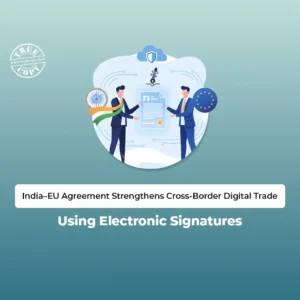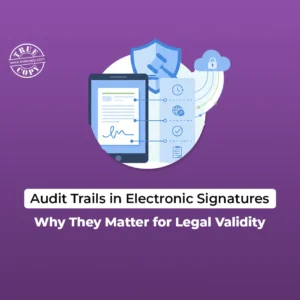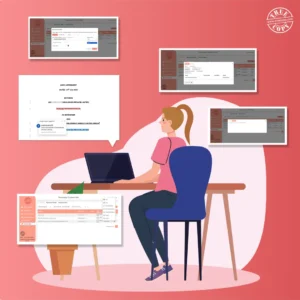Digitisation makes life convenient, easy and fast. This has led to the creation of the delocalised world wherein clients have transformed into digital consumers who demand various services anytime, anywhere. Furthermore, this has led to the creation of electronic documents that require digital authentication.
The traditional method of signing the documents is time-consuming and makes the process unnecessarily lengthy. Digital signing solutions, on the other hand, are conducive, secure, easy to use, verifiable and save time. Read on to know how digital signature will indeed transform the process of document authentication:
What is a Digital Signature?
Digital signature software in India can be defined as a digital fingerprint. It is the mathematical code that secures the document and ensures the authenticity of the document or the message to the receiver. The digital signing solution also verifies the identity of the signing entity and proves the intention of the identity behind signing the document. It also conveys that the signature is linked to the signing entity through the signed document.
The digital signature symbolises the individual’s intent to accept the written contents of the document. Therefore, the individual cannot deny that they have not signed the document at any future date because the digital signature is indeed unique to the signing entity and the document. This is also called the property of non-repudiation.
The digital signature could be utilised with any type of documentation or message and makes the receiver assured of the identity of the signing entity per the sender. It also signifies that the message or document was received in untouched condition.
How Does Digital Signature Work?
The digital signature software in India functions over the Public Key Infrastructure, which protects communications on a non-secure channel with the help of two separate Cryptographic keys – Public Key and Private Key. The Cryptographic key is a remarkable piece of data used to validate the integrity and authenticity of the digital message or the document.
The private key is usually utilised by the individual to create the digital signature software in India to lock or encrypt the data. The key is a secret and helps protect the information of the user from any kind of tampering or theft. At the same time, the public key is used to unlock or decrypt the available data and is open to everybody who is authorised to view the message or document. The key is an automatically linked pair that works together. The message is encrypted with the private key and could be decrypted only by utilising the public key from a similar pair.
The secrecy and authenticity of the message or document can be maintained from the fact that the private key of the signing entity wasn’t stolen or compromised by an unauthorised individual. However, if that is the case, the individual can then create different fraudulent signatures with the name of the entity or the private key holder.
How to Make a Digital Signature?
For digitally signed invoices or documents, the individual or entity must acquire the digital certificate from a competent certifying authority. This helps the receiver of the documents to verify the identity and credentials of the signing entity.
When digitally signing the document, the signing entity uploads the document or message in the software/ program. Then a single message or cryptographic hash of the document is made, which is then encrypted from the private key of the signing entity. Finally, the cryptographic hash enabled document is delivered online or on the internet with the public key.
The value of the hash is unique for every hashed document, and any kind of change in the document will result in the transformation of the value of the hash. This unique characteristic enables proper data validation by the recipient or receiver.
Once the recipient receives the document, the hash is then decrypted with the help of the public key of the signing entity or the sender. This creates a cryptographic hash for a similar document. If both the values of the hash match on the comparison, this certifies that the data or document is authentic and that there are no alterations to the data. If the value of the hash does not match, then it is an indication that the data or document is corrupted or tampered with.
If you want to know more about digitally signed invoices, you must visit TRUECOPY today.



